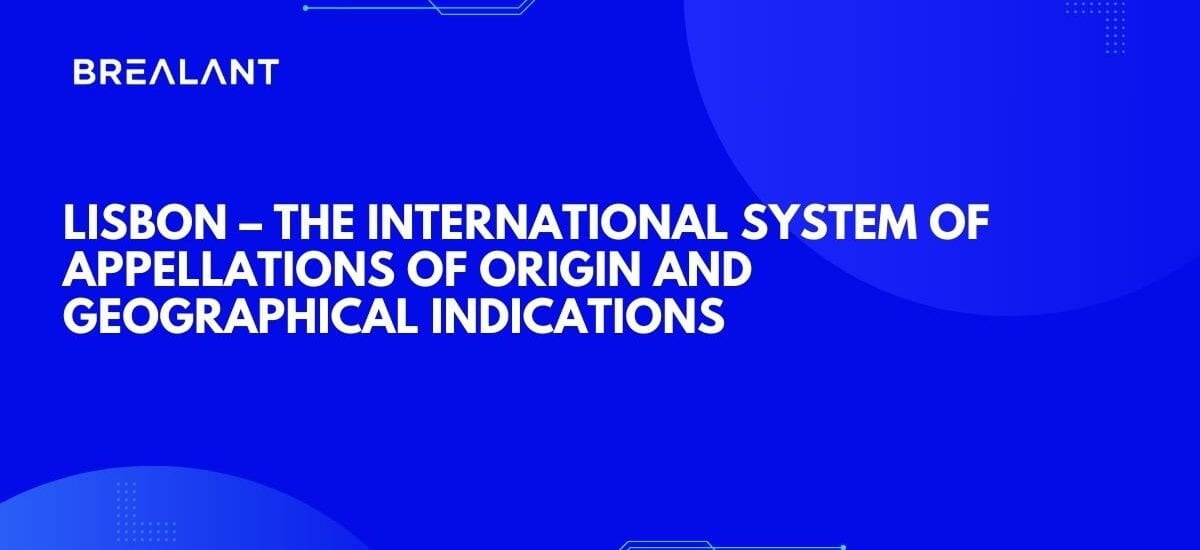
The protection of Geographical Indications (GIs) and Appellations of Origin (AOs) is a critical component of intellectual property rights with international significance. Building on our previous blog on Geographical Indication Protection in the context of WIPO, we will now delve into the Lisbon System and its role in ensuring the protection and recognition of GIs and AOs on a global scale. This blog will explore how the Lisbon System operates, its advantages, and how it aligns with WIPO’s mission.
Understanding the Lisbon System
The Lisbon System for the International Registration of Appellations of Origin and Geographical Indications is one of the key international frameworks managed by the World Intellectual Property Organization (WIPO). Established by the Lisbon Agreement in 1958 and later revised in 2015, this system offers a simplified and efficient means for the international protection of AOs and GIs. It facilitates the registration and recognition of these valuable intellectual property assets, allowing producers to benefit from enhanced protection and market access worldwide.
The Lisbon System vs. National Systems
The Lisbon System stands out for its distinct advantages when compared to national systems for GI and AO protection:
- Simplified Procedures: The Lisbon System streamlines the application process by allowing applicants to file a single international application. This reduces the administrative burden for producers who wish to protect their products in multiple countries.
- Time and Cost Savings: Under national systems, producers would need to file individual applications in each country where they seek protection. The Lisbon System significantly reduces both the time and costs associated with this process.
- International Recognition: Once registered through the Lisbon System, AOs and GIs gain international recognition and protection, helping producers expand their reach and market their products to a global audience.
- Coordination with National Systems: The Lisbon System complements national protection systems. In many cases, registration through the Lisbon System can facilitate the registration process in individual member countries.
WIPO’s Role in Administering the Lisbon System
WIPO serves as the guardian of the Lisbon System, overseeing its implementation and ensuring its effectiveness. WIPO’s responsibilities under the Lisbon System include:
- Facilitating Registration: WIPO assists applicants in the registration process and maintains the International Register of Appellations of Origin and Geographical Indications.
- Administering the System: WIPO is responsible for the administrative and legal aspects of the Lisbon System, including receiving applications, issuing registrations, and managing disputes.
- Promotion and Outreach: WIPO promotes the Lisbon System, encouraging more countries to join and benefit from its advantages. It also provides guidance and support to member countries in implementing the system.
- Training and Capacity Building: WIPO offers training and capacity-building programs to help countries and producers understand the benefits and procedures of the Lisbon System.
Advantages of the Lisbon System
The Lisbon System offers numerous advantages to producers, consumers, and countries, including:
- Increased Market Access: For producers, registration through the Lisbon System means their AOs and GIs can reach a global market, expanding their consumer base and potential sales.
- Consumer Trust: International recognition of AOs and GIs instills confidence in consumers, assuring them of product quality and authenticity.
- Cultural Preservation: By protecting AOs and GIs, the Lisbon System contributes to the preservation of cultural heritage and traditional knowledge, which is often deeply rooted in the regions of origin.
- Economic Growth: AOs and GIs can drive economic growth in regions where these unique products originate, fostering innovation and providing livelihoods for local communities.
- Streamlined Administration: The Lisbon System simplifies the administrative burdens of registering and protecting AOs and GIs in multiple countries, making it more efficient and cost-effective.
Conclusion
The Lisbon System, administered by WIPO, is a powerful tool in the protection and promotion of Appellations of Origin and Geographical Indications. It simplifies the registration process, enhances international recognition, and contributes to the economic and cultural development of regions of origin. As a critical component of the global intellectual property landscape, the Lisbon System aligns with WIPO’s mission to foster innovation, encourage economic growth, and protect the unique products that define our world.
When it comes to protecting your intellectual property rights, trust the experts at Brealant, an esteemed IP law firm with a proven track record in the field. Our dedicated team of professionals is well-versed in the intricacies of intellectual property laws, including the registration and protection of Appellations of Origin and Geographical Indications. We understand the importance of safeguarding your unique products on the international stage. We can guide you through the process of registering your AOs and GIs through the Lisbon System, ensuring that you receive the recognition and protection you deserve. Partner with Brealant and take the first step toward securing the future of your distinctive products in the global marketplace.

